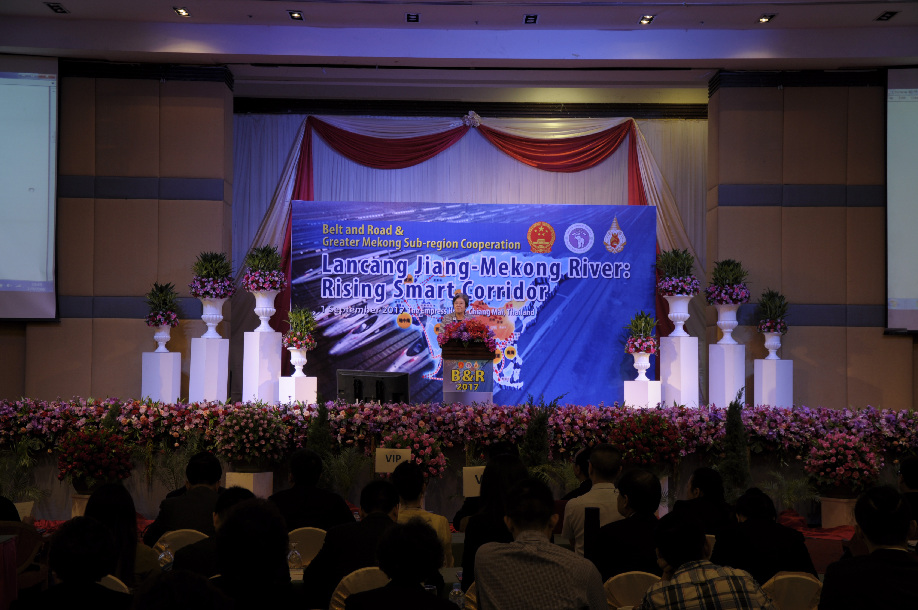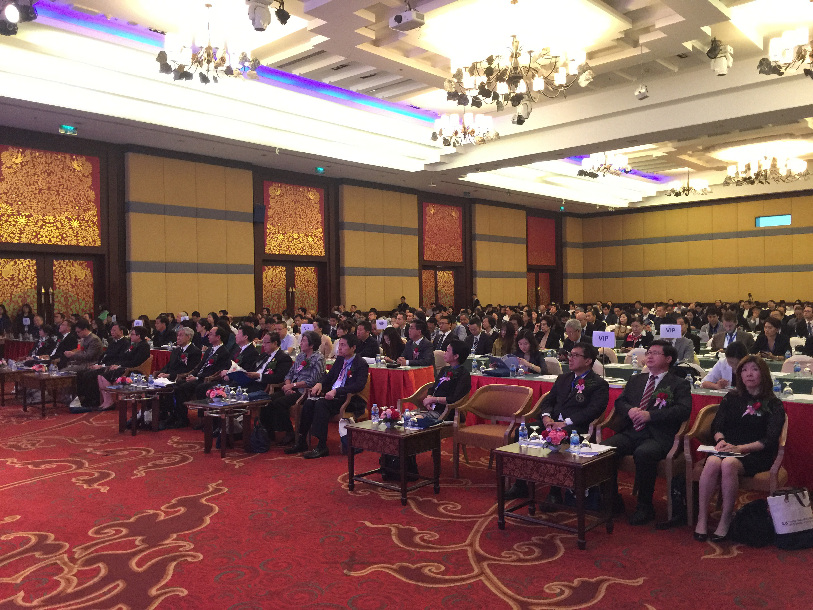
On 1 September 2017, H.E. Mme. Yang Xiuping, Secretary-General of ASEAN-China Centre (ACC) attended and addressed the International Conference on Belt and Road & Greater Mekong Sub-region Cooperation held in Chiang Mai.
Secretary-General Yang Xiuping briefly introduced the development of relations between China and ASEAN and the fruitful achievements made by the two sides. She said that jointly building the Belt and Road has become a new highlight of ASEAN-China relations. Lancang-Mekong Cooperation (LMC) will help the six countries harness the advantages of geographical proximity, cultural affinity, and economic complementarity to further tap their development potential and narrow development gaps among ASEAN countries as well as speed up the building of ASEAN community and regional integration process. In future, the two sides should further synergize development strategies and continue to strengthen policy coordination and top-level design; promote connectivity in all areas and launch more new projects; cultivate more cooperation highlights and growth areas, join hands to promote industrial upgrading and enhance cooperation in technology innovation and other areas; fully tap the potential of local exchanges; deepen people-to-people exchanges especially in the areas of education and cultivate more talents for the joint building of the Belt and Road.
Secretary-General Yang Xiuping also briefed the work of ACC in promoting friendly exchanges and cooperation between ASEAN and China. She expressed that ACC would continue to harness its role as a one-stop information and activities centre, work with relevant partners from all walks of life, contribute to the building of the Belt and Road and raise the cooperation between ASEAN and China as well as the Greater Mekong Sub-region cooperation to a new level.

Ms. Supee Teravaninthorn, Director General of Asian Infrastructure Investment Bank, Mr. Chaiwat Thongkamkoon, Director General of Office of Transport and Traffic Policy and Planning of Ministry of Transport of Thailand, Prof. Wang Huiyao, Counselor of Office of the State Council of China, President of the Centre for China and Globalization and Prof. Wang Yiwei, Director of the Institute of the International Affairs of Renmin University respectively delivered speeches at the plenary session. They highly valued the positive achievements of the building of the Belt and Road and expressed that based on the principle of extensive consultation, joint contribution and shared benefits, the initiative has presented a brand new concept and opportunity to push forward the world economy and build a more inclusive globalization. As the development level of Mekong countries is different and their economy is highly compatible with each other, there is great potential for future cooperation. Besides constructing more physical infrastructure such as roads and railways, relevant sides should put more efforts on promoting regional connectivity on soft infrastructure such as lowering customs duties, speeding up customs clearing process so as to lower logistic costs and promoting further facilitation of regional trade and investment. In energy cooperation, all countries should fully play their comparative advantages and tap the hydro power potential of Mekong river and realize regional connectivity in energy market. China has successful experience in development of infrastructure, e-commerce, logistic management, telecommunication, etc. which could be shared with Mekong countries. All sides should seize the opportunity and actively participate in and push forward the building of the Belt and Road and solidly raise the level of regional connectivity and economic integrity, create more benefits to the peoples along the river.
Panel sessions on Economic, Trade and Investment, Information, Technology and Smart City, Tourism, Culture, Education and Heritage were held after the plenary session. Participants exchanged views on the said topics and looked forward to continuing to deepen mutually beneficial cooperation and realize common development.